The Kingdom of Swaziland is a small country the size of Wales, has one million inhabitants and is surrounded on three sides by South Africa and on the remaining side by Mozambique.
Last week Swaziland held one of its most important cultural ceremonies – the Umhlanga Reed Dance. We were able to attend the final two days of this annual, week long event!
On the penultimate day we were able to see many, many thousands of girls (“maidens”), from all over the country, deposit their reeds as part of their village groups at the Ludzidzini Royal Village. For me, there was something that had a faint memory of Girl Guides – much of it seemed to be about identity and belonging. We never went topless though!
After laying down their reeds at the palace, the girls then paraded around the nearby stadium. Each group of girls was different, with their own vibrant colours and attire, many carrying swords and shields. Each cohort was usually led by a member of the Royal Family, with red feathers in their hair. We left at 6pm after four hours.
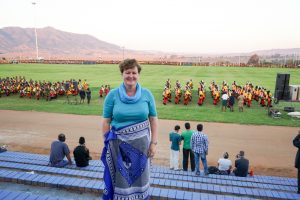
The stadium – visiting women needed to wear a skirt – fortunately for me suitable wraps were available to buy!
On the last day, we expected more dancing with all the girls together. However, it was more of the same! (I hadn’t realised the parade was the dancing!) This time we had negotiated more central seats, near the Royal Family. Dignitaries from the SADC conference were also sitting near us, and yet security seemed neither overt or clumsy.
After three circuits, the girls all came on the stadium together and faced the King. The singing and movement at this point was intense! The King then spent quite some time greeting the girls, walking amongst them, you could tell where he was from where the press cameras above hovering! Again we left after four hours as it got dark, before the girls were going on to dance again in the Palace for the Queen Mother. They have some stamina!
You can research more about the history of the Reed Dance – we had a guide on the first day, but it still seemed quite hard to understand. My felt experience though was this:
- It was probably the most strange event I have ever attended where I also felt supremely comfortable, welcomed, accepted and safe.
- The girls genuinely did seem to enjoy it. Other Swazi women we spoke to, such as waitresses at the camp, had clearly enjoyed taking part in it too, before they were married and had children.
- There was almost a maternal air, with scores of female police officers present, with everyone protecting and wanting the best for the girls of the nation. (Perhaps you would also like to know that boys have their own event December/January time).
In the United Kingdom, as we embark further on our path post-Brexit, maybe there are some relevant messages for us here too, that small countries can have influence and do great things on an independent basis, whilst being part of a larger context with others.

In the same week Swaziland was also hosting the SADC (Southern African Development Community) with many dignitaries in attendance at the dance
If you would like some help in thinking through how to optimise emerging new possibilities with your customers, suppliers and business partners in our post-Brexit context, please do get in touch.
Gill How has over twenty years experience of helping senior leaders step into the unknown, co-create their future partnerships and deliver visible results. If you would like to meet for an exploratory cup of coffee to help develop your response to Brexit or other challenges, contact her here.
Want to see more?
If you would like to hear as well as see pictures of the Reed Dance, here is a four minute clip to enjoy:
If you would like to sign up for regular content like this, please do so here.
Photo and video credits: Martin How, Swaziland 2016.

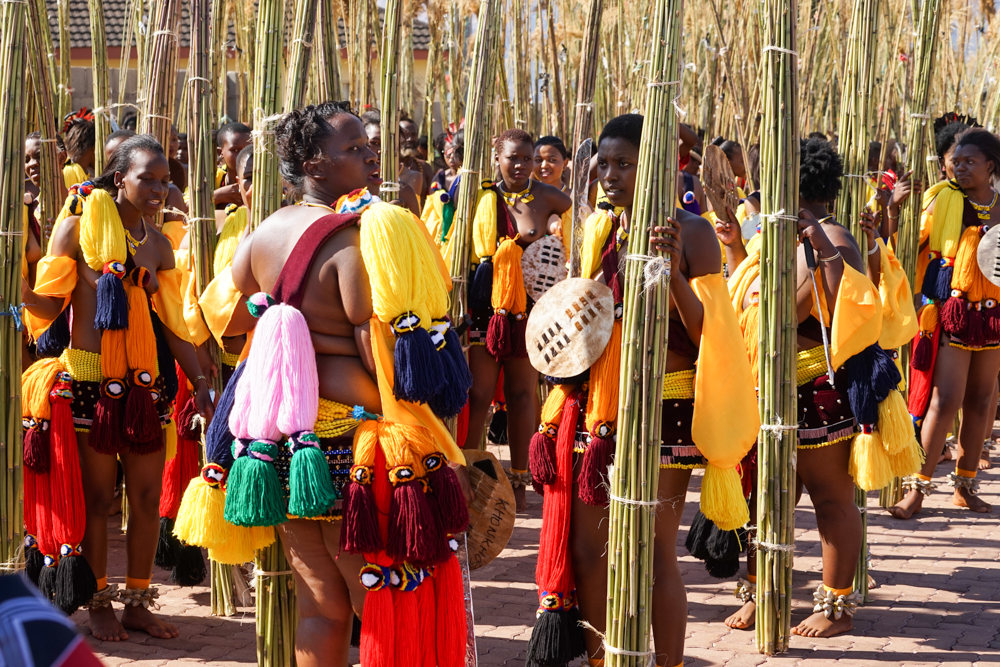
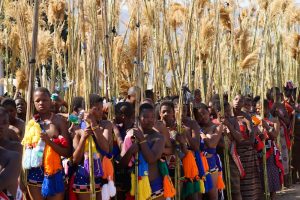
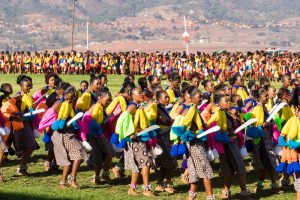
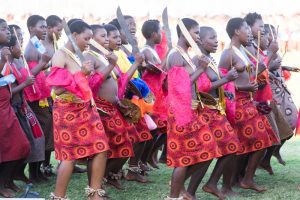
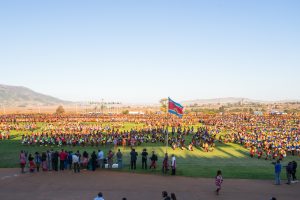
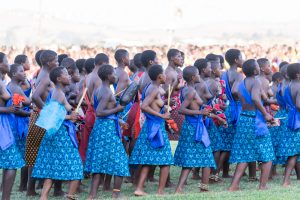
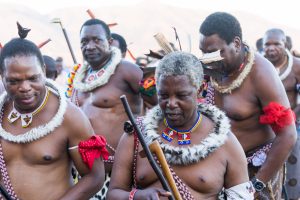




Lovely write up Gill and glad that you got to see the Reed Dance, it is one of the more spectacular traditional events that I have been to.
Thank you Jenny – and for organising us such a great trip once again!
What an experience! Looks like you had a great time. Such a beautiful country.
Thank you James!